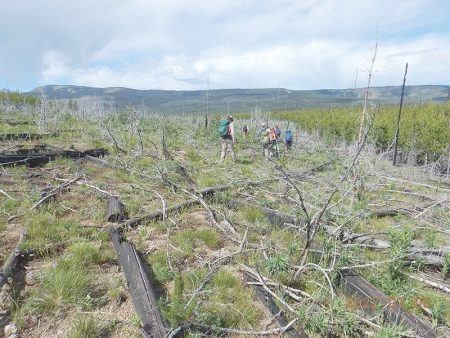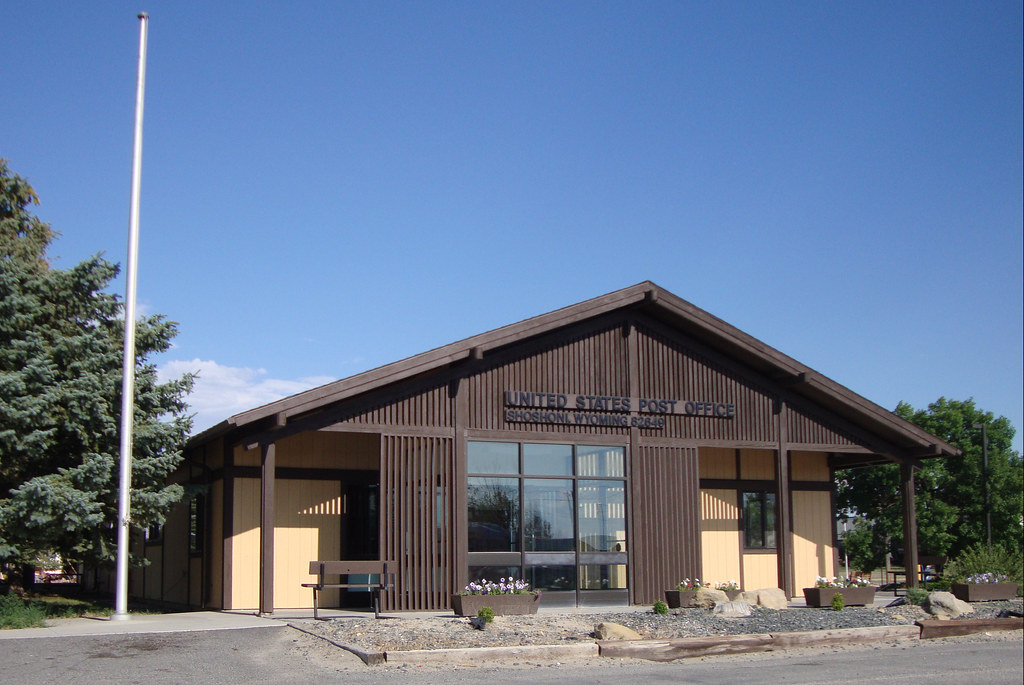Scientists Warn About Changing Yellowstone Ecosystem
Written by Jessi Entel on July 12, 2023
The future of the Greater Yellowstone Ecosystem is unknown due to longer wild fire seasons and shorter recovery periods between fires, according to a renowned landscape ecologist.
Monica Turner, a Vilas Research Professor in the Department of Integrative Biology at the University of Wisconsin-Madison and the Eugene P. Odum Professor of Ecology, says that due to warming temperatures and drier summers, the landscape will change significantly before the turn of the century.
Because of the dry terrain and increased temps, more wildfires are likely, which will lead to receding forested land in Yellowstone and the surrounding areas. There will also be drastically shorter intervals between wildfires, which will affect the recovery of the landscape between fires.
“Atmospheric CO2 levels are higher than anytime they have been in the past 3.3 million years and temperatures are hotter than they have been at any time in the past 20,000 years,” she said, adding, “in Yellowstone, the growing season is already two weeks longer than it used to be. That means fire season is two weeks longer as well.”
Just last week, we broke unofficial temperature records that planet experts have been tracking for decades.
According to Turner, considerably large forest fires that would happen once every 100 to 300 years could happen as often as every 30 years. For a forest to fully grow a mature lodgepole pine forest, it can take up to 200 years.
In a forest that has time to mature, the pine tress in the area like lodgepole pines, have time to develop hardy cones that can handle fires and drop their seeds when the fires strike. If the period between fires is shortened, the trees will not have ample enough time to develop hardy pinecones, so other foliage with replace them and there will be sparsely covered meadows in their place.
While speaking at the Coe Auditorium in the Buffalo Bill Center of the West last week, Turner said, “We’ll see more young forestry burning, and in some case, we’ll see a conversion of forests to meadow or grasslands.”
Turner’s research also showed there will be a drastic change in the atmosphere’s carbon dioxide levels by 2050 and there will be a lot of areas throughout the Greater Yellowstone Ecosystem where the trees will not be found in the next century.

Scientists working with the University of Wisconsin head out in Yellowstone National Park to do research on the effects of fires in the Greater Yellowstone Ecosystem. The research has turned up scenarios due to changing climates that could change the landscape in the park. (Courtesy Photo)
If our CO2 emissions get under control by 2050, temps will still increase. “But if we stay on the course we’re on, we’ll get really much warmer.”
When the environment is hotter, the likely hood of fires increases, along with the likelihood of the forest being able to effectively recover between fires.
“We go from historical conditions … where the time between fires would have been more than 120 years, like it’s been for 10,000 years, and then as we go through the latter part of the century, the weather conditions that could give you big fires start to occur so frequently that they’re happening every year,” said Turner. ”And that means that the weather conditions that could give you big fires — like 1988 — maybe happen every 20 years or every 30 years.”
For over 25 years, Turner has studied fire, nutrient cycling, bark beetle outbreaks, vegetation dynamics, and climate change in the Greater Yellowstone area. She also said the the scenarios from her research are not predictions, and were done in collaboration with other ecologists.
“I’m not going to say in 2079 this is what will happen,” she said. “ It’s more like, in a sense, if you think about hurricane maps, when they give you lots of different trajectories, we’re looking at lots of different outcomes, give the same weather conditions.”
The first Thursday of every month, the Draper Museum’s Lunchtime Expedition lecture series is held, thanks to support from the Nancy-Carroll Draper Charitable Foundation and the Sage Creek Ranch.

